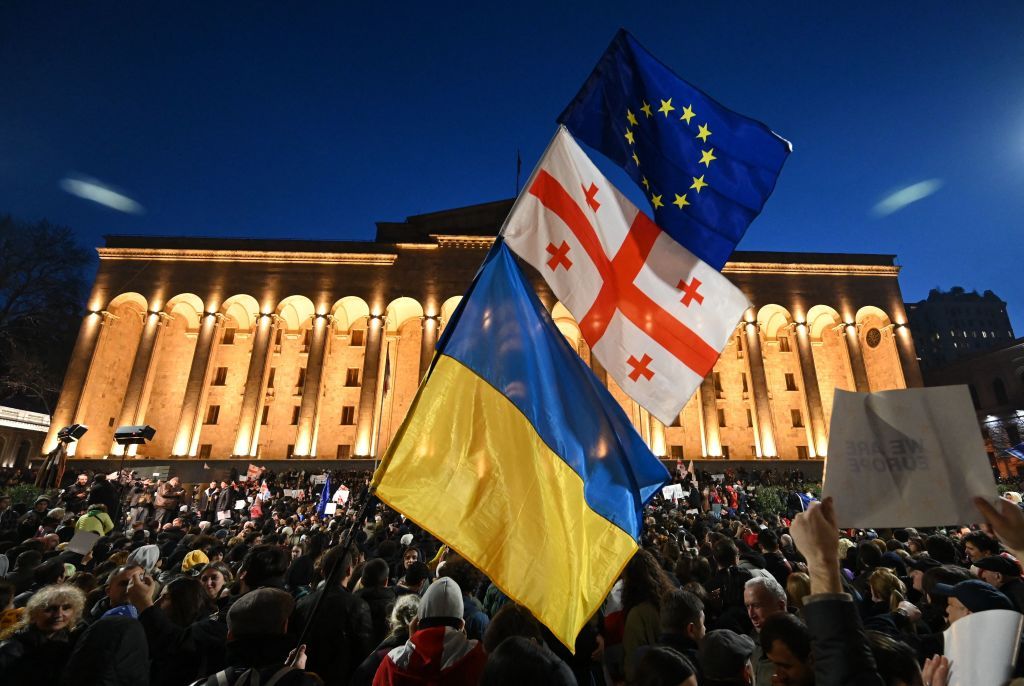Thousands protest in Georgia over controversial foreign agents bill

The Georgian parliament postponed the vote on the first reading of the controversial foreign agents bill to April 17 amid mass protests, local media reported on April 16.
According to officials, the April 16 parliamentary session was supposed to end at 9 p.m. local time. Since the debates on the bill had not finished, the vote had to be pushed to the following day.
The bill, first introduced in 2023 by the ruling Georgian Dream party, would require organizations that receive foreign funding to be labeled as such. Widespread demonstrations broke out in protest of the proposed law, and it was eventually abandoned in March 2023.
The bill became popularly known in Georgia as the "Russian law" for its resemblance to similar legislation passed in Russia. Moscow's "foreign agents" registry has been widely used to target and silence groups and individuals who are critical of the government, including independent journalists, activists, and NGOs.
The Georgian Dream party recently reintroduced the legislation in parliament, renaming it a bill on the "transparency of foreign influence."
The decision sparked mass protests in the country's capital of Tbilisi, with thousands of protestors chanting "No to Russian law" outside the parliament building.
Even within the parliamentary session, debate over the bill has remained tense. Mamuka Mdinaradze, the leader of Georgian Dream's parliament faction and a key force behind the bill, was punched in the face by opposition MP Aleko Elisashvili while speaking from the dispatch box during an early discussion of the revived bill.
Georgian police reportedly began using tear gas to break up the demonstrations outside parliament during the late hours of April 16, reportedly leading to several injuries and arrests. The official number of those detained is not yet confirmed.
Pawel Herczynski, the EU's ambassador to Georgia, said earlier this week that the foreign agents bill is "incompatible" with European values.
The European Commission offered Georgia candidate status to the EU in November 2023. It is widely believed that the foreign agents law will hurt Georgia's chances of entering the bloc, if passed.












